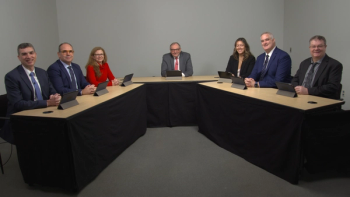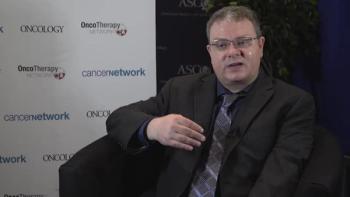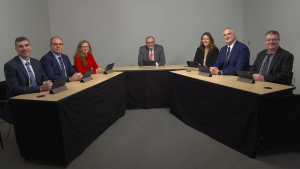Articles by Philip C. Mack, PhD

Providing Supportive Care to Patients with NSCLC
ByFred R. Hirsch, MD, PhD,Mary B Beasley, MD,Nicole Hall,Philip C. Mack, PhD,Daniel G Nicastri, MD,Nicholas C Rohs, MD,Christian Rolfo, MD Helping patients manage potential treatment-related adverse events is an essential part of the overall care plan in the treatment of non-small cell lung cancer. Experts provide strategies to address adverse events and best practices for providing the supportive care needed for patients.

Choosing the Optimal NSCLC Treatment
ByFred R. Hirsch, MD, PhD,Mary B Beasley, MD,Nicole Hall,Philip C. Mack, PhD,Daniel G Nicastri, MD,Nicholas C Rohs, MD,Christian Rolfo, MD A group of experts discuss the current treatment algorithm for NSCLC, as well as novel approaches under investigation, the impact of molecular biomarkers on their treatment decisions, and the importance of clinical trials.

Important NSCLC Biomarkers
ByFred R. Hirsch, MD, PhD,Mary B Beasley, MD,Nicole Hall,Philip C. Mack, PhD,Daniel G Nicastri, MD,Nicholas C Rohs, MD,Christian Rolfo, MD Fred R. Hirsch, MD, PhD, leads a discussion with his Mount Sinai colleagues about important biomarkers found in non-small cell lung cancer, including those that provide predictive and prognostic information.

Biomarker Testing Best Practices in NSCLC
ByFred R. Hirsch, MD, PhD,Mary B Beasley, MD,Nicole Hall,Philip C. Mack, PhD,Daniel G Nicastri, MD,Nicholas C Rohs, MD,Christian Rolfo, MD Non-small cell lung cancer experts share biomarker testing protocols and best practices for optimal outcomes, with a focus on overcoming challenges and nuances of testing.

In this video we discuss a large-scale genomic analysis that found that patterns of genetic changes detected in circulating tumor DNA mirror those identified in tumor tissue biopsies.





